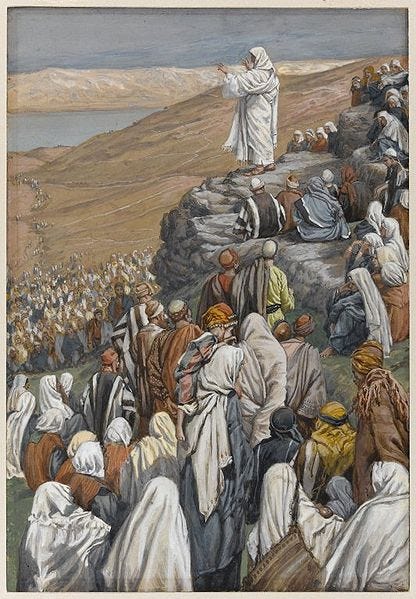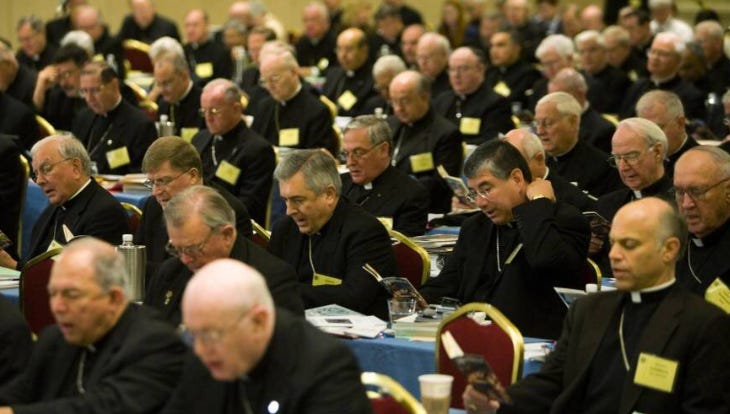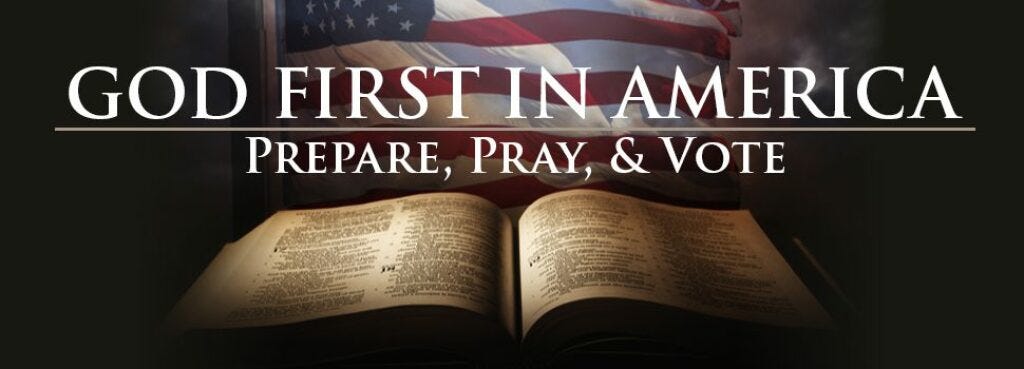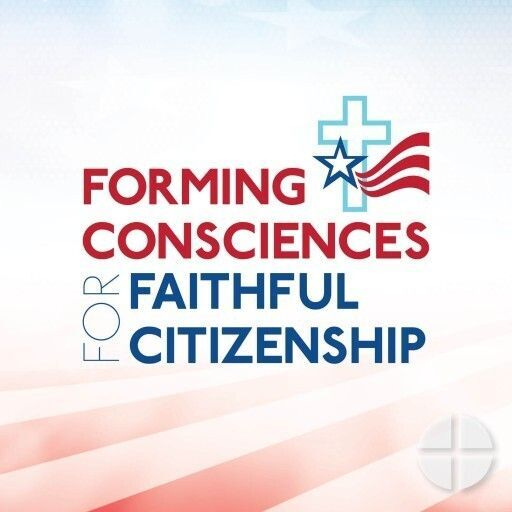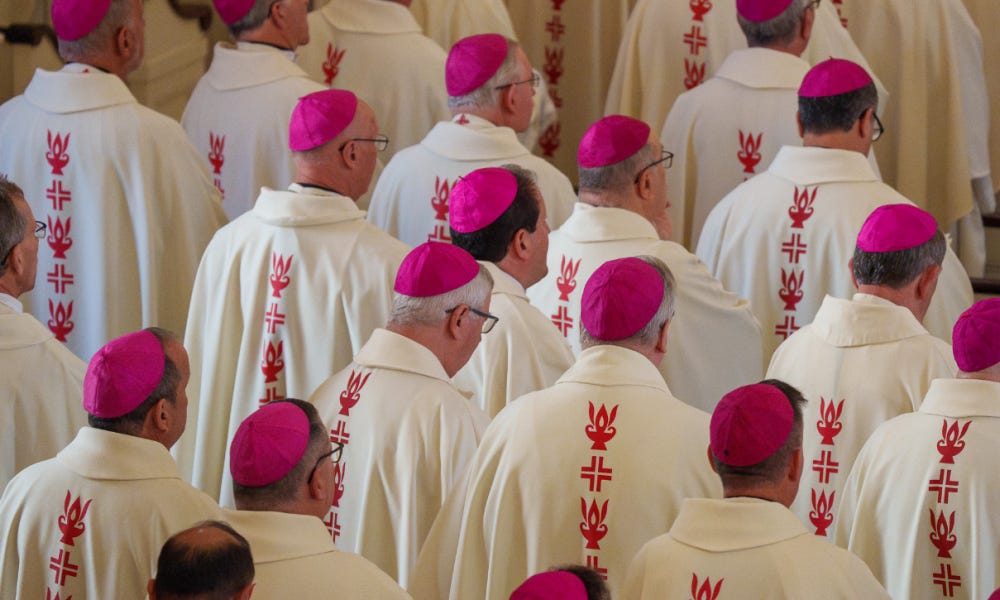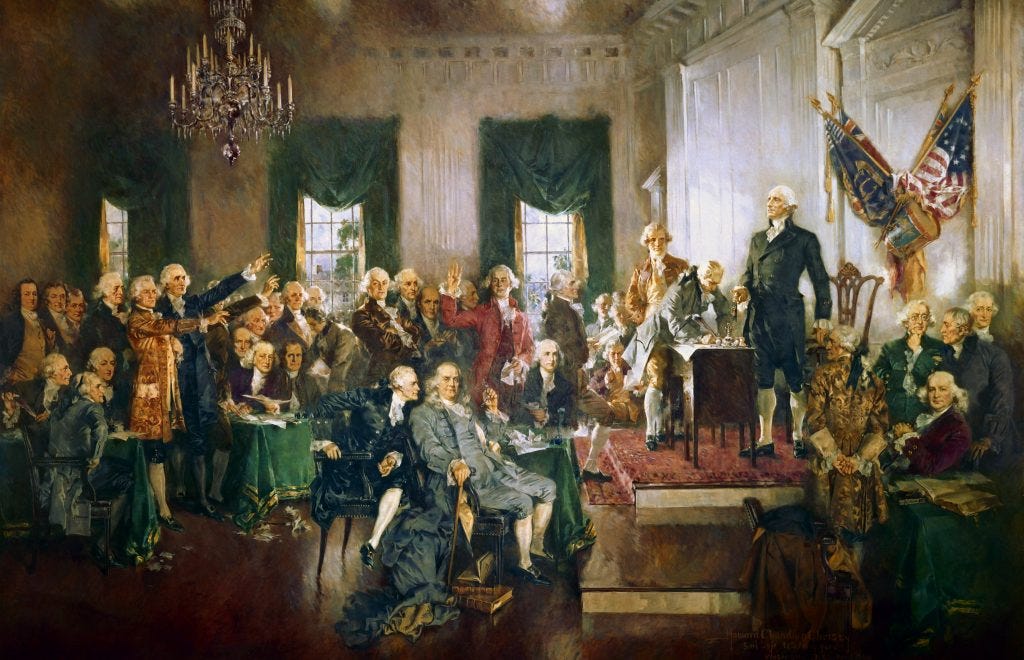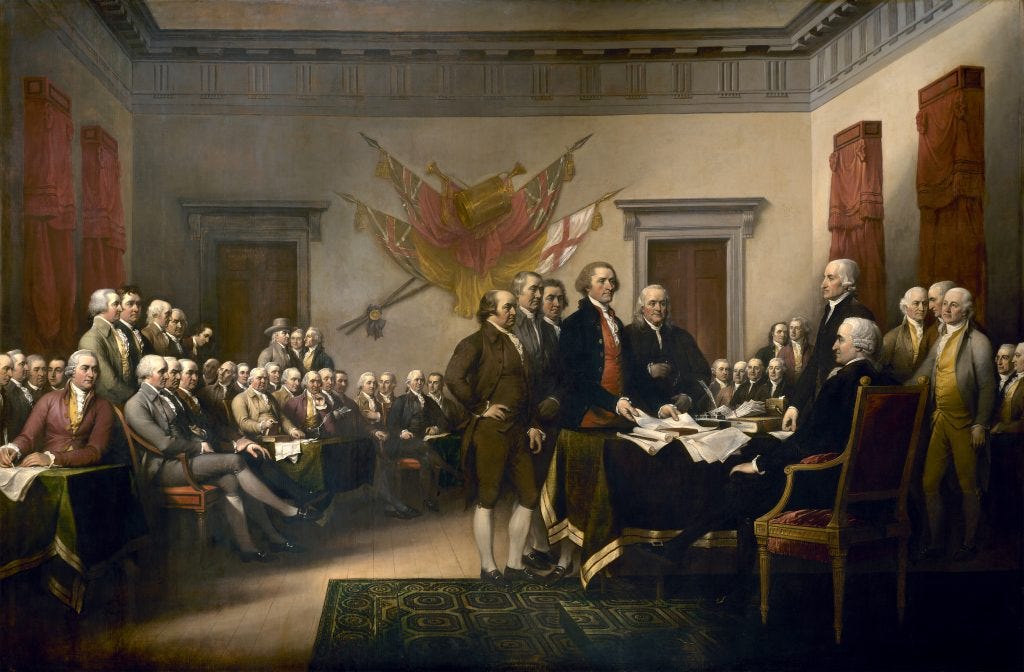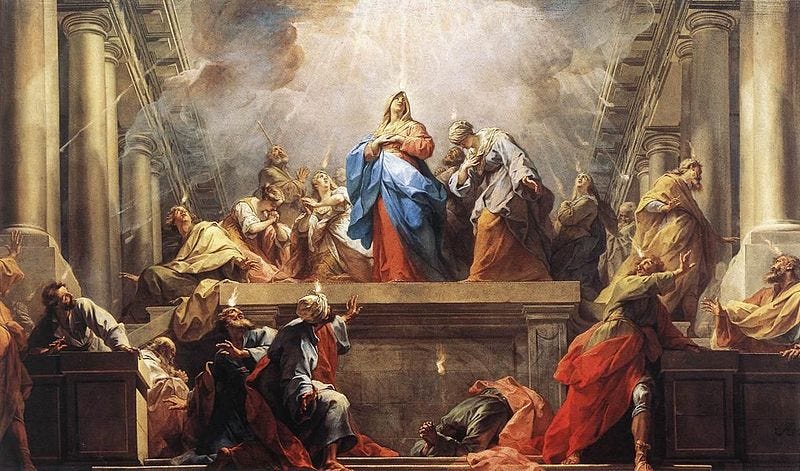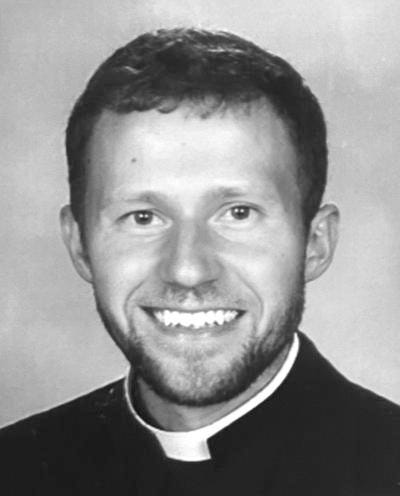Editor’s Note: Fr. Ben Daghir recently preached this homily to help parishioners prepare for the election. He directs parishioners to practical resources offered by the Diocese of Erie. Fr. Daghir also synthesizes the USCCB document Forming Consciences for Faithful Citizenship.
I would like to focus this homily on preparing to vote in the upcoming election.
As Catholics, we are called to cast a virtuous vote. This demands preparation and work. It also requires knowing where our bishops in the United States stand on the most critical political issues. We have resources to guide us in this process. We don’t have to do this on our own.
What resources are available to us? Where can we find these resources?
First, the Diocese of Erie's website has helpful resources, including a letter from Bishop Lawrence T. Persico. I encourage you to read the letter before analyzing the other resources.
The other resources assist us in comparing the presidential candidates and the candidates at the state level.
The document that compares the presidential candidates is called “Presidential Candidate Comparison.” This resource compares the candidates on major political issues: Abortion, Criminal Justice Reform, the Death Penalty, Educational Choice, Environment, Gender Issues, Health Care, Immigration/Refugees, In vitro fertilization (IVF), Poverty, Racial Equity, Religious Freedom, and Ukraine and the Middle East.
I find the document extremely helpful in analyzing both candidates and seeing where they stand (or do not) with Catholic Church teaching.
The following document focuses on the state election in Pennsylvania. This resource is titled “Pennsylvania Catholic Conference Voter Guide.” The resource provides Catholic Social Teaching and the websites of each candidate.
The most valuable resource is an in-depth, rich document that takes time to process. This document, “Forming Consciences for Faithful Citizenship,” comes from the United States Conference of Catholic Bishops (USCCB).
The document is over 60 pages. It requires time and attention.
In this homily, I’d like to synthesize various parts of the document and pose some questions the document answers.
What are the bishops’ roles in assisting me with my political vote?
I receive this question quite often from people. Many are curious why the Catholic Church doesn’t just say to Catholics, “Vote for_________.”
It doesn’t work that way. The Catholic Church stands behind Jesus Christ and does not endorse a particular candidate. The bishops are very clear in the document about how this works.
The bishops write, “While the bishops help form the laity in accordance with basic principles, they do not tell the laity to vote for particular candidates. On these often complex matters, it is the laity’s responsibility to form their consciences and grow in the virtue of prudence to approach the many and varied issues of the day with the mind of Christ.”
The bishops also write, “We bishops do not intend to tell Catholics for whom or against whom to vote. Our purpose is to help Catholics form their consciences in accordance with God’s truth. We recognize that the responsibility to make choices in political life rests with each individual in light of a properly formed conscience.”
What is the Catholic position on voting in general? Should we vote as Catholics?
The bishops write, “In the Catholic Tradition, responsible citizenship is a virtue, and participation in political life is a moral obligation.”
I found this line to be very powerful. We have a moral obligation. As citizens of the United States, we have this remarkable right and responsibility to vote. As Catholics of the Roman Catholic Church, we have a moral obligation to do so in a virtuous and prudent manner.
What should guide us while we vote?
The bishops write, “As citizens, we should be guided more by our moral convictions than by our attachment to a political party or interest group. When necessary, our participation should help transform the party to which we belong; we should not let the party transform us in such a way that we neglect or deny fundamental moral truths or approve intrinsically evil acts.”
This is a powerful statement from the bishops. As Catholics, we are called to transform the world and bring the light of Christ into it. This is the great vision of the Second Vatican Council and has always been the vision of the Church.
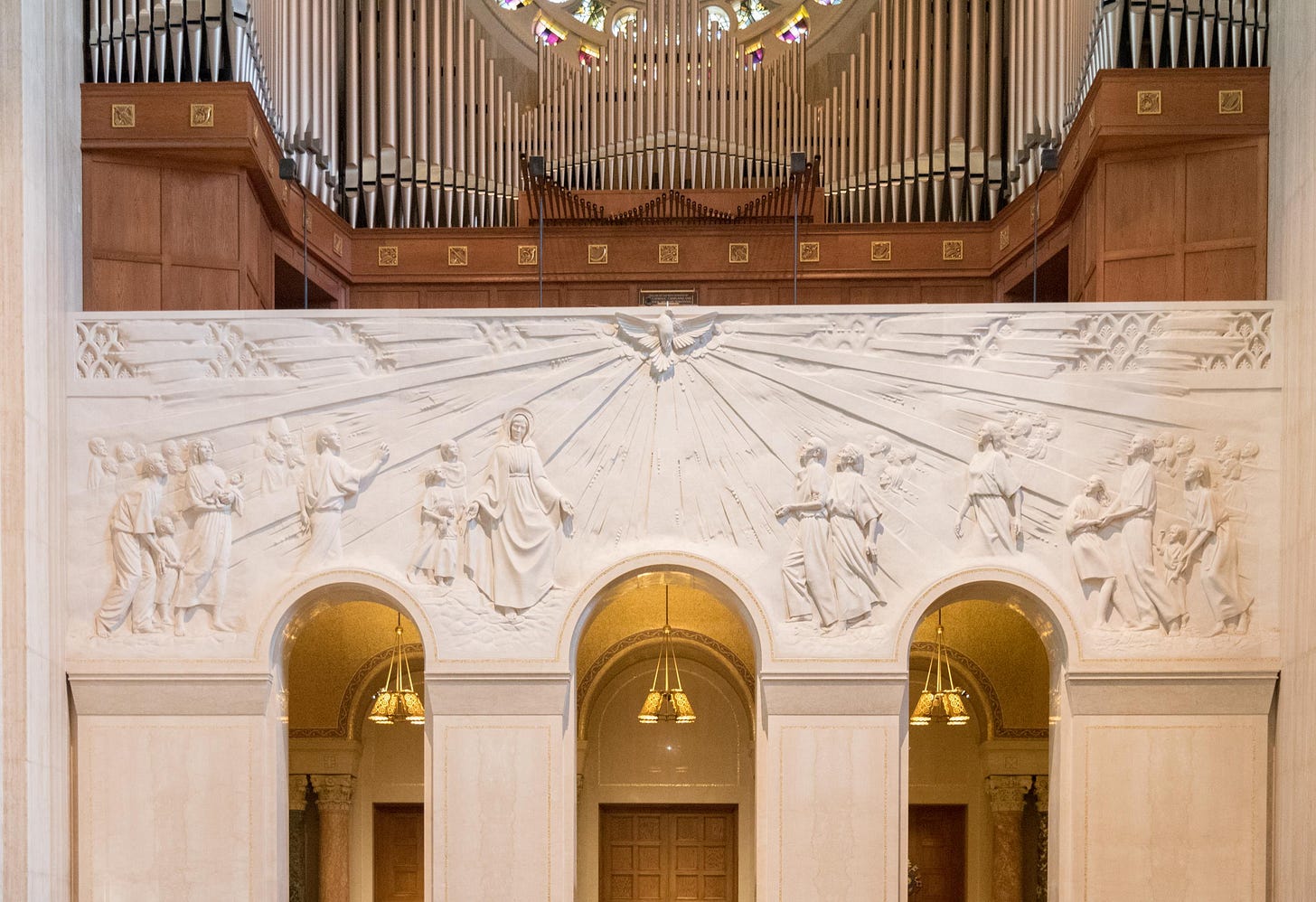
This vision ultimately comes from Jesus Christ. Jesus utilizes imagery to drive this point: salt of the earth and a lamp. Salt permeates and enhances what it enters, while a lamp casts light into darkness.
This means we must enter the world, dialogue, and transform it.
Politics is an avenue to bring salt and light into the world, to bring the Gospel into every sphere of life (including the political sphere).
The bishops talk a lot about “forming one’s conscience.” What exactly does that mean for me with the upcoming election?
The bishops write, “The formation of conscience includes several elements.”
“First, there is a desire to embrace goodness and truth. For Catholics, this begins with a willingness and openness to seek the truth and what is right by studying Sacred Scripture and the teaching of the Church as contained in the Catechism of the Catholic Church.”
“Second, it is also important to examine the facts and background information about various political choices.”
“Third, prayerful reflection is essential to discern the will of God. Catholics must also understand that if they fail to form their consciences in the light of the truths of the faith and the moral teachings of the Church they can make erroneous judgments.”
I’ll be the first to admit my faults. I struggle with this order provided by the United States bishops. I don’t always turn to Sacred Scripture first. I don’t always turn to the Catechism first. I often jump ahead to political situations and issues. I often can get sucked into the drama and the details of politics.
On a personal level, I need to be grounded in the primacy of God’s word and His Church. Before I venture into political topics, I need my worldview grounded in the Catholic faith. Of course, I must always bring all of this to God in prayer.
How easy it is to fail to bring everything to God in prayer! If we are honest with ourselves, we know that we don’t always bring all of our thoughts, views, and positions to the Lord.
How is our order? Have we first turned to the Bible in the past few weeks and months leading up to this election? Have we first turned to the Catechism of the Catholic Church leading up to this election? Have we allowed the Catholic faith to hold primacy in our thinking and analyzing of political topics?
Or have we jumped to CNN and Fox News before listening to God’s word?
I think all of us should pay special attention to these steps provided by the U.S. bishops. There’s a tremendous amount of wisdom in this three-step process:
1.) Bible and Catechism
2.) Examine the political issues and know the facts
3.) Pray, talk to God, discern
What is the most important issue for voters in the 2024 presidential election?
The bishops write, “The threat of abortion remains our pre-eminent priority because it directly attacks our most vulnerable and voiceless brothers and sisters and destroys more than a million lives per year in our country alone.”
Our U.S. bishops could not be more explicit on this matter. I simply repeat their words as I stand united with them, “The threat of abortion remains our pre-eminent priority because it directly attacks our most vulnerable and voiceless brothers and sisters and destroys more than a million lives per year in our country alone.”
The bishops also know that many major political issues are before us.
The bishops write, “Other grave threats to the life and dignity of the human person include euthanasia, gun violence, terrorism, the death penalty, and human trafficking. There is also the redefinition of marriage and gender, threats to religious freedom at home and abroad, lack of justice for the poor, the suffering of migrants and refugees, wars and famines around the world, racism, the need for greater access to healthcare and education, care for our common home, and more. All threaten the dignity of the human person.”
As a Roman Catholic priest, I stand with the bishops of the United States on these political matters.
The bishops provide ten critical goals at the end of the document Forming Consciences for Faithful Citizenship. The U.S. bishops state, “These and similar goals can help voters and candidates act on ethical principles rather than particular interests and partisan allegiances.”
The ten goals that the Bishops encourage Catholics to consider before voting in this election:
“Address the preeminent requirement to protect the weakest in our midst— innocent unborn children—by restricting and bringing to an end the destruction of unborn children through abortion and providing women in crisis pregnancies the supports they need to make a decision for life.”
“Keep our nation from turning to violence to address fundamental problems—a million abortions each year to deal with unwanted pregnancies, euthanasia and assisted suicide to deal with the burdens of illness and disability, the destruction of human embryos in the name of research, the use of the death penalty to combat crime, and imprudent resort to war to address international disputes.”
“Protect the fundamental understanding of marriage as the life-long and faithful union of one man and one woman and as the central institution of society; promote the complementarity of the sexes and reject false “gender” ideologies; and provide better support for family life morally, socially, and economically, so that our nation helps parents raise their children with respect for life, sound moral values, and an ethic of stewardship and responsibility.”
“Achieve comprehensive immigration reform that offers a path to citizenship, treats immigrant workers fairly, prevents the separation of families, maintains the integrity of our borders, respects the rule of law, and addresses the factors that compel people to leave their own countries.”
“Help families and children overcome poverty: ensuring access to and choice in education, as well as decent work at fair, living wages and adequate assistance for the vulnerable in our nation, while also helping to overcome widespread hunger and poverty around the world, especially in the areas of development assistance, debt relief, and international trade.”
“Provide health care while respecting human life, human dignity, and religious freedom in our health care system.”
“Continue to oppose policies that reflect prejudice, hostility toward immigrants, religious bigotry, and other forms of unjust discrimination.”
“Encourage families, community groups, economic structures, and government to work together to overcome poverty, pursue the common good, and care for creation, with full respect for individuals and groups and their right to address social needs in accord with their basic moral and religious convictions.”
“Establish and comply with moral limits on the use of military force— examining for what purposes it may be used, under what authority, and at what human cost—with a special view to seeking a responsible and effective response for ending the persecution of Christians and other religious minorities in the Middle East and other parts of the world.”
“Join with others around the world to pursue peace, protect human rights and religious liberty, and advance economic justice and care for creation.”
I know this information is challenging and very personal to each of us. We have strong feelings about these topics. We are passionate. This is very good, but we must always be grounded in our Catholic faith.
Again, where can we go to form our conscience and be prepared to make a virtuous vote?
Visit the Diocese of Erie website. It has very valuable resources.
Remember the steps from the bishops of the United States for forming our conscience:
Go to Scripture and the Catechism. Be grounded in God’s word and our Catholic faith.
Know the political issues well. Examine the facts in light of our Catholic faith.
Pray and discern. Talk to God.
As the bishops stated, “Political participation is a moral obligation.” We are called to be involved and to be engaged as Catholics.
Go be a lamp in a dark world. Go be salt and permeate our nation. Go vote with a formed conscience. Let your Catholic voice be heard and felt.
Fr. Ben Daghir





